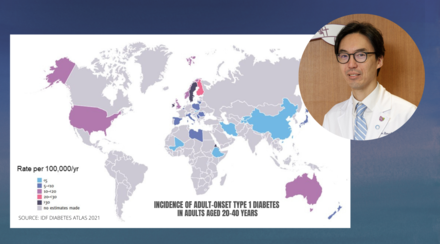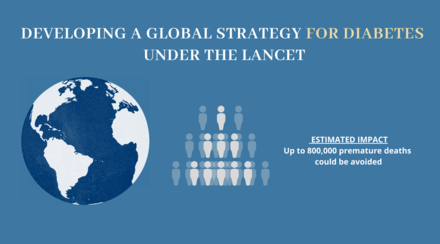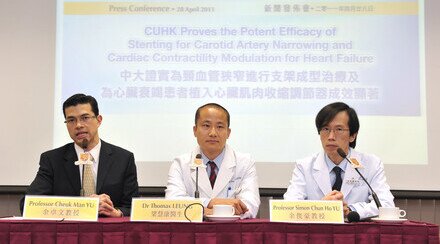CUHK Study Reveals High Salt Intake Will Lead to High Blood Pressure and Higher Risk of Stroke
Stroke is the leading cause of severe disability and deaths worldwide, though it is largely preventable. In Hong Kong, stroke is the fourth leading cause of death and the most common cause of physical dependency, accounting for more than 20,000 hospital admissions and 3,000 deaths every year. It is estimated that the medical expenditure incurred directly and indirectly in stroke patients aged 65 or above amounted to HK$8 billion in 2010, and will increase to HK$22 billion by 2036.

(from left) Dr. CHAN Suk Mei Ruth, Research Associate; Professor YU Ho Yan Ruby, Research Assistant Professor; and Prof. SEA Man Mei Mandy, Assistant Professor (by Courtesy), Department of Medicine and Therapeutics, and Centre Manager, Centre for Nutritional Studies, CUHK present the findings of their study that high salt level will lead to high blood pressure and higher risk of stroke, and recommend that reducing salt intake is the simplest and the most cost-effective way to prevent stroke.
According to the research findings of the Faculty of Medicine at The Chinese University of Hong Kong (CUHK), Hong Kong people have excessive salt intake of 10g per day in average, far exceeding the maximum daily intake of 5g per day proposed by the World Health Organisation (WHO). Evidence showed that reducing salt intake can prevent thousands of deaths from stroke and heart attack every year.
Stroke is classified into ischemic (blockage of blood vessels in the brain) or hemorrhagic (ruptured blood vessels with bleeding inside the brain). In the past decade, although ischemic stroke incidence had been declining, incidence of hemorrhagic stroke did not decline but showed a rising trend in the middle age group (aged 35 to 44). This might be due to the increasing prevalence of hypertension by approximately 60% between 1995 and 2004, which is one of the most important risk factors for stroke and is responsible for two thirds (62%) of all strokes. Many medical papers have suggested that salt is not only a major factor that raises blood pressure, but also a risk factor leading to stroke incidence.
CUHK research team suggests that reducing salt intake is the simplest and the most cost-effective way to prevent stroke. People can eat less salt by reading food labels, choosing low-salt food and ingredients, and avoiding adding salt during cooking or having meals.

Prof. SEA Man Mei Mandy (right 1st), Assistant Professor (by Courtesy), Department of Medicine and Therapeutics, and Centre Manager, Centre for Nutritional Studies, CUHK expresses that Hong Kong people have excessive salt intake of 10g per day in average, far exceeding the maximum daily intake of 5g per day proposed by the World Health Organisation (WHO).






































































